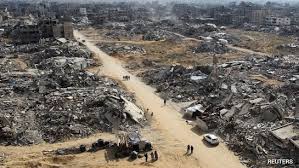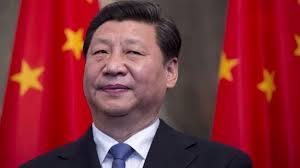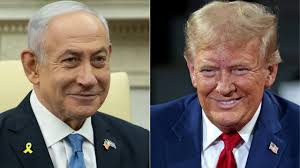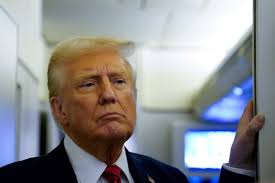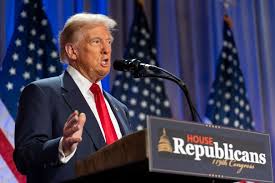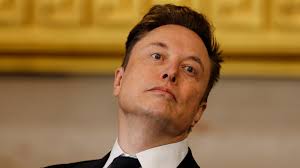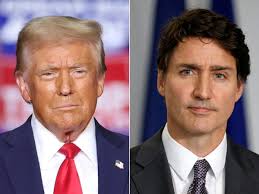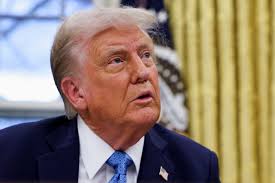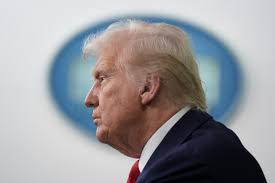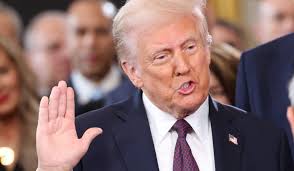As reactions continue to trail the planned deportation of about 5, 144 Nigerians illegally living in the United States (US), the Nigerians in Diaspora Commission, NiDCOM, has said that the Federal Government is ready to welcome them home.
According to reports, no fewer than 5,144 Nigerians may be affected in the initial stage of the ongoing deportation exercises from the US as President Donald Trump’s crackdown on undocumented immigrants continues.
The figure includes non-US citizens of Nigerian origin in the Immigration and Customs Enforcement, ICE, and Enforcement and Removal Operations, ERO, non-detained docket with final orders of removal from the US and those already in ICE detention.
According to the data, 772 of the 1,454 Nigerians in ICE custody were arrested and detained for criminal convictions or pending criminal charges, while the rest were arrested for other immigration violations, such as visa overstays.
It further showed that 417 were arrested and removed as of November 2024, while 884 were removed between 2019 and 2024.
The disclosure by ICE comes at a time when the newly inaugurated administration of President Trump is implementing an immigration policy aimed at ridding the United States of illegal immigrants.
There have been issues surrounding the deportations with at least three countries, Mexico, Columbia and Brazil, alleging that their nationals were returned home in a degrading manner and there are fears the treatment could be extended to Nigerian deportees.
Columbia specifically said the deportees to the country were airlifted in military planes, handcuffed and treated like criminals.
Colombian President Gustavo Petro condemned the military deportation flights and said he would never carry out a raid to return handcuffed Americans to the U.S.
“We are the opposite of the Nazis,” he wrote in a post on social media platform X.
He also said however that Colombia would welcome home deported migrants on civilian planes, and offered his presidential plane to facilitate their “dignified return”.
Trump had threatened tariffs and sanctions on Colombia to punish it for earlier refusing to accept military flights carrying the deportees as part of his sweeping immigration crackdown.
But in a statement, the White House said Colombia had agreed to accept the migrants after all and Washington would not impose its threatened penalties.
The use of U.S. military aircraft to carry out deportation flights is unusual.
U.S. military aircraft carried out two flights, each with about 80 migrants, to Guatemala penultimate Friday.
Mexico also refused a request to let a U.S. military aircraft land with migrants.
Trump has said he is thinking about imposing 25% duties on imports from Canada and Mexico on Feb. 1 to force further action against illegal immigrants and fentanyl flowing into the US.
Brazil’s foreign ministry, on its part, condemned “degrading treatment” of Brazilians after migrants were handcuffed on a commercial deportation flight.
Upon arrival, some passengers also reported mistreatment during the flight, according to reports.
The plane, which was carrying 88 Brazilian passengers, 16 U.S. security agents, and eight crew members, had been originally scheduled to arrive in Belo Horizonte in the southeastern state of Minas Gerais.
However, at an unscheduled stop due to technical problems in Manaus, capital of Amazonas, Brazilian officials ordered removal of the handcuffs, and President Luiz Inácio Lula da Silva designated a Brazilian Air Force (FAB) flight to complete their journey, the government said in a statement.
The commercial charter flight was the second this year from the U.S. carrying undocumented migrants deported back to Brazil and the first since Trump’s inauguration, according to Brazil’s federal police.
Speaking to Sunday Vanguard, Chairman/CEO NiDCOM, Hon. Abike Dabiri, restated to Sunday Vanguard the position of the Director of Media and Corporate Affairs of the commission, Abdur-Rahman Balogun, who spoke earlier to Vanguard on Wednesday.
She said, “Except you want to interview the Minister of Foreign Affairs for his own perspective. NiDCOM Director of Media and Corporate Affairs, Abdur-Rahman Balogun, already told Vanguard that the Ministry of Foreign Affairs was in charge of such development and that the Federal Government had already set up an inter-agency committee to handle the matter should Nigerians be deported from the US.
“The Federal Government has set up an inter-agency committee, comprising the Ministry of Foreign Affairs, NiDCOM, the Ministry of Humanitarian Affairs, and the Office of the National Security Adviser, NSA, should there be mass deportation of Nigerians from the US”, she said.
Also reacting to the development, a former Nigerian Ambassador to the US, Ambassador Joe Keshi, insisted that if the President Tinubu-led government decides to improve the economy, the Japa syndrome would reduce drastically and people would decide to stay back in their country.
He said, “There’s no way it can affect our economy. If the Federal Government improves the economy, people will stay; it’s just the family they have been sending money to that would suffer because they won’t have the money they used to have before. Unless they find another means of survival.”
